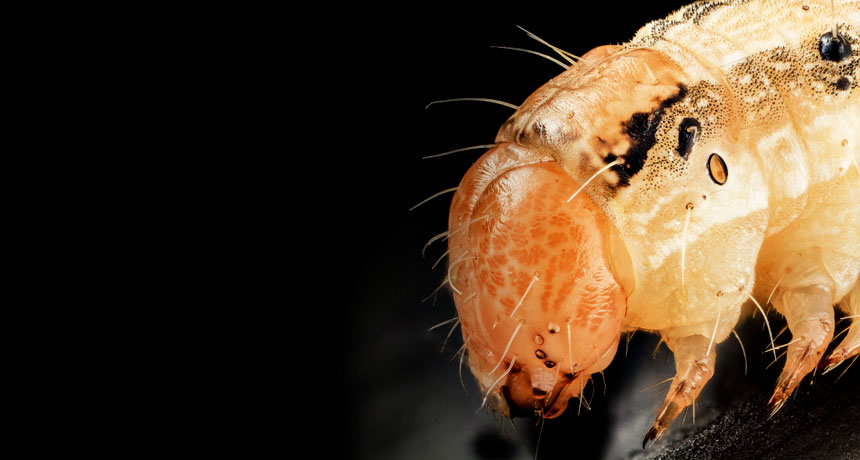Climate change might help pests resist corn’s genetic weapon

Climate change might be great news for pests looking to munch on genetically modified crops, researchers propose.
In particular, researchers analyzed 21 years of data from Maryland cornfields and suggest that rising temperatures might help corn earworms (Helicoverpa zea) develop resistance faster to a widespread genetically built-in crop protection.
Some commercial varieties of corn have been engineered with genes for a toxin borrowed from the bacterium Bacillus thuringiensis, known as Bt, that kills the earworms when they eat the crop. In areas with a lot of Bt corn acreage, plants defended by the Bt protein Cry1Ab suffered more earworm damage when summers grew warmer, the team reports June 7 in Royal Society Open Science.
The idea is plausible, says Bruce Tabashnik of the University of Arizona in Tucson. He was not involved with the new research but for years has studied insects developing resistance to Bt.
It’s unclear why more damage occurred when temperatures were warmer. Higher temperatures might stress the plants and undermine their defenses. Also, insects depend on their surroundings for body warmth or cooling, so changing temperatures make a huge difference in their lives, says coauthor Dilip Venugopal, an applied ecologist working as a policy fellow at the U.S. Environmental Protection Agency in Washington, D.C. Pests evolving resistance to Bt might do so faster when a warming landscape, for instance, lets them squeeze extra generations into a year and gives earworms a better chance of surviving the winter. Or insects revved up by heat might find it easier to metabolize toxins.
The dataset in the new study is unusual in detail and time span, coming from years of cornfield monitoring by coauthor Galen Dively of the University of Maryland in College Park. The link between pest resistance and climate change, however, is based on correlations at this point, cautions Venugopal, and more research is needed to clarify how warming affects the pests.